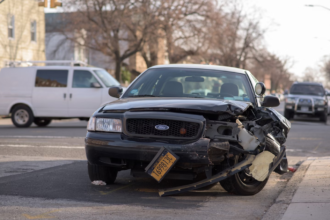The sudden responsibility of vehicle ownership can change even the passive into the vigilant. A recent study found that over 90% of drivers use seatbelts. Hundreds of laws have been introduced over the years so seat belt use becomes the norm, as opposed to an occasional random choice.
Many states across the U.S. have now made seat belt laws mandatory. Seatbelt safety has seen impressive growth over the past decades. Have you always used your strap? If not, now is the time to change your ways and reconsider.
Read on to learn about the ways seatbelt laws have made our roads safer.
1. Secures You in Position
If you find yourself in a situation where your car starts to spin, your seatbelt will secure you in your position so you can take proper action. Drivers who are not buckled up tend to over-correcting the steering and lose control.
2. Distributes Impact Force
The seatbelt also distributes the impact force of a collision over the chest and pelvis. Which are the strongest bones in the body, rather than allowing the full force to be concentrated on one area. This has prevented serious injuries and fatal injuries in many cases, as the body is better able to withstand the force when it is evenly distributed.
3. Protects Your Brain and Spine
Beyond just saving lives, seatbelts also protect your brain and spine from serious injury in the event of car accidents. In car accidents without a seatbelt, your head and spine can be severely injured as they strike the dashboard or seat in front of you. Wearing a seatbelt reduces the risk of these kinds of injuries.
4. Seatbelt Laws Prevent Ejection
Seatbelt laws have helped to save countless lives by preventing drivers and passengers from being ejected from vehicles during accidents. Wearing a seatbelt greatly increases the chances of surviving a car crash, and it is estimated that seatbelts have been saved.
In addition to saving lives, seatbelts also reduce the severity of injuries sustained in accidents. While seatbelts cannot prevent all injuries, they can certainly help to reduce their severity of them.
5. Makes Your Body Correspond to the Speed of Your Car
You will most like to move at the speed same as your car after the impact if you are not wearing a seatbelt. You could smash the wheel, the window, or the dashboard. By buckling up, you will be connected to your seat so you also slow down if your vehicle stops abruptly.
Buckle Up
Buckle up every time you get in the car. Seatbelts have saved countless lives and will continue to do so as long as people use them. The seatbelt law has helped make seatbelts more visible and remind people of their importance. Continue to use seatbelts and make sure to tell your friends and family to do the same.
Interested in learning more about laws? Then be sure to explore our blog for all of the answers to your questions!















